
The Free Press

Why did Claudine Gay step down yesterday as president of Harvard? In a letter announcing the bombshell decision, Gay wrote that it was in “the best interests of Harvard for me to resign so that our community can navigate this moment of extraordinary challenge with a focus on the institution rather than any individual.”
She also blamed racism: “It has been distressing to have doubt cast on my commitments to confronting hate and to upholding scholarly rigor—two bedrock values that are fundamental to who I am—and frightening to be subjected to personal attacks and threats fueled by racial animus,” Gay wrote in her email Tuesday.
Missing from Gay’s note was some important. . . context.
In particular, there was no mention of the twin scandals that have plagued Gay and captured the attention of the country in recent weeks. The first: her handling of antisemitism and free expression on Harvard’s campus since October 7, including her appalling appearance before Congress in December.
The second: the ever-growing list of plagiarism allegations against Gay. On Monday night, the dogged journalists over at The Washington Free Beacon reported six more charges of plagiarism. That brought the number of allegations against Gay close to 50 and implicated half of her published works in the scandal. The next day, Gay was gone, making her the shortest-serving president in Harvard’s history: the Kevin McCarthy of higher ed.
Within minutes the crowing began. Major props went to Bill Ackman, the billionaire investor who has relentlessly criticized his alma mater since the attacks of October 7; to Chris Rufo, the Manhattan Institute senior fellow who was early on the story of plagiarism allegations against Gay; and to Free Beacon reporter Aaron Sibarium (more about him in a minute).
But does Gay’s resignation—and apparently she will remain on the faculty—actually change things?
Our sense—and recent events have only reinforced it—is that Claudine Gay is only the symptom of a deeper rot, both at Harvard and across higher education more generally.
One of the people who has been outspoken about that deeper crisis is Jeffrey Flier, who was the dean of Harvard Medical School from 2007 to 2016 and is a member of the Council on Academic Freedom at Harvard, a group founded by Harvard academics last year to fight the free speech crisis on their campus. (Harvard ranks dead last with a score of 0.00 in FIRE’s college free speech rankings.)
We spoke to Flier hours after Claudine Gay’s resignation. He said he sees the present crisis as a chance for the university to fix itself. “Her departure may have been necessary. But the university needs to do more than appoint a new president,” he explained.
“Before October 7, few people thought fixing problems at Harvard was a really urgent need. I am with a group that wanted real change, but relatively few people were listening. But now there is real opportunity for change,” explains Flier.
“Will the current moment lead to profound change? More likely than not it won’t. But it will lead to some beneficial change. I am quite confident of that.”
Flier told us he takes some encouragement from his recent interactions with the board of the famously secretive Harvard Corporation—the group that appointed Gay and oversees the university. As The New York Times recently reported, Flier, along with Steven Pinker (also a member of the Council on Academic Freedom), was invited to dinner with corporation board members.
Flier called the invitation “quite shocking and previously unimaginable” and sees it as a sign that the board understands the scale of the problem they have on their hands.
He explained that “we had a three-hour completely open conversation in which we were talking about viewpoint diversity, issues with DEI, suppression of speech, people being pushed out of their roles for speech that wasn’t liked by activists and all that.”
“They listened, and they implied there was very likely going to be some meaningful action,” said Flier.
Let’s hope so. In the meantime, Gay is gone. Now, about that journalist whose reporting led to her downfall. . .
Free Beacon, take a bow. Their reporting exposed the plagiarism that made Gay’s position untenable. Aaron Sibarium, the Free Beacon reporter whose beat is broadly the capture of woke institutions, is a bulldog. And we mean that in a good way.
“It’s been an interesting day,” said Sibarium when we spoke yesterday to ask him a couple of questions about his part in Gay’s downfall.
What was the straw that broke the camel’s back?
AS: I think it was probably a combination of factors: first, our latest reporting, published on Monday, contained some pretty bad examples of plagiarism that were hard to dismiss. Second, Harvard suspected there would be more coming, given the immense scrutiny on Claudine Gay’s record. And third, my sense is that faculty support for her collapsed in the past week and a half, as more examples of plagiarism surfaced and discontent with the Harvard Corporation grew.
And why does this story matter? A skeptical reader may think Harvard will just replace Gay with a similar figure and nothing much will change. Help us persuade that reader that they’re wrong.
AS: This entire saga may establish a new incentive structure for university decision-makers going forward. If you hire someone who does not meet the highest standards of academic rigor or who applies double standards on things like free speech and DEI, you know that they will be under tremendous scrutiny. You know that if the dirt exists, it will surface. So you have an incentive to be a little more discerning about who you elevate.
And if you are a university president, you certainly have an incentive to be more careful about political bias. Do you really want half the country rooting for your downfall? Do you really want that target on your back? In the shadow of Claudine Gay’s resignation, institutional neutrality may come to be seen as a safe harbor.
‘Iranian pirates’ and other fun 2024 surprises with Admiral James Stavridis...
Look out at the world at the start of 2024 and what you see isn’t exactly reassuring. Consider that, as Aris Roussinos notes in an essay for UnHerd, “the year 2023 saw the greatest global resurgence of armed conflict since 1945.” Roussinos’s prediction: “2024 will be worse.” He thinks “the overriding theme of 2024 will be. . . imperial overstretch precipitating retreat from global dominance.”
Friend of The Free Press Niall Ferguson strikes a similarly gloomy note in a column for Bloomberg. “The pax americana seems to be ending,” he writes. “The fate of Ukraine—of Israel and Taiwan, too—hangs in the balance.”
The latest developments in the Middle East only underscore the gravity of the situation.
Last weekend, American forces in the Red Sea found themselves in a direct clash with Houthi rebels as part of efforts to safeguard one of the world’s most vital trade routes. On Monday, Iran responded by sending a naval frigate of its own into the Red Sea. On Tuesday, a senior Hamas leader was killed in a suspected Israeli strike in Beirut. What will tomorrow bring?
We asked Admiral James Stavridis, whose decorated career in the U.S. Navy included serving as supreme allied commander of NATO, to help us understand the tense situation in the Red Sea.
Help the completely uninitiated understand the current crisis: How have the Houthis been allowed so much leverage over a main artery of international commerce?
JS: The Houthi rebels could as easily be called “Iranian pirates.” They are creatures of Tehran, who have trained, equipped, organized, and directed their efforts ashore against the Yemeni government. Now the Houthis, at Iranian direction, have turned to the sea. As we discovered a decade ago in fighting the Somali pirates, such organizations are hard to stop simply by defending at sea—the Red Sea is the size of California. Imagine trying to patrol California with a dozen police cars: that's the number of warships on scene.
Attacks by Houthi terrorists on commercial ships show no sign of stopping. The administration recently put together an international effort to safeguard the shipping routes in the Red Sea, but is that enough? Is there more that the administration could be doing?
JS: The administration’s new military coalition, Operation Prosperity Guardian, is a good idea. However, I suspect it will prove to be necessary, but not sufficient. The world's largest shipping company, Maersk, has suspended all traffic through the Red Sea (and effectively through the Suez Canal). To stop this piracy will require going ashore and taking out Houthi infrastructure. Shooting down hundred-dollar drones with million-dollar missiles isn't going to stop them.
More generally, how do you view the administration's military response to events on and after October 7? The White House is clearly determined to avoid a regional escalation, but are U.S. actions making the Middle East safer?
JS: The Biden team is playing a bad hand of cards with skill. They have, at least thus far, deterred Iran from taking further action against Israel directly (especially via Hezbollah). They have done all they can to support Israel militarily and diplomatically. With the Houthi upsurge at sea, I’d say it is time to strike ashore to try and strengthen deterrence in that domain.
The Houthis are not the only Iran-backed forces now in direct conflict with U.S. forces. Last week, the U.S. hit sites in Iraq and there have been regular attacks on U.S. troops by Iran-backed groups in Iraq and Syria since October 7. At what point do we say that we are in a proxy war with Iran? And how likely is a direct conflict?
JS: Proxy war perhaps overstates it, but if we do launch strikes ashore against the Houthis, we are getting pretty close. That is not in the interests of either Tehran nor the United States, and thus I’d say the chances of this flashing into a hot regional fight between the U.S. and Iran directly are in the range of 25 percent: still uncomfortably high.
Oh, and have we mentioned the presidential election from hell?
You may have heard: we’re officially in an election year. And with Donald Trump polling well ahead of his Republican rivals, Martin Gurri has a message for his fellow Americans—especially the ones who revile the ex-president.
“I know a lot of you don’t like Trump. Neither do I. But let’s assume he’s only a politician. He’s not Hitler, Godzilla, or the Beast of the Apocalypse—just a guy with a loud mouth and a desperate need for attention. Most Americans think of him that way,” Gurri writes in his essay for Discourse, which we are pleased to reprint today.
But, he warns, “when you demonize those who disagree with you, you invite treatment in kind. And believe me when I say this: you will reap the whirlwind.”
Read his full plea to the electorate here—and share your own thoughts in the comments:
This is me talking about politics to myself. If you disagree with me, you may never see this; my words are immured in an anti-establishment information ghetto and can’t easily reach you. If in defiance…
From our newsroom:
Last month, we published Francesca Block’s investigation into how antisemitism is taught in American public schools. From lessons on “ethnic noses” to lectures on Israel as an apartheid state, it painted a troubling picture of hate within our education system. (ICYMI, Watch Frannie discuss her piece on Morning Joe.)
One of the schools mentioned in the story was Hillcrest High School in Queens, New York, where pupils discovered that a Jewish teacher had supported Israel on her personal Facebook page and flooded the hallways, chanting “Free Palestine” while the teacher barricaded herself in an office.
Here’s Frannie with the latest from that school:
Since our investigation, the New York City Department of Education "reassigned" Hillcrest High School Principal Scott Milczewski to a new post in the central bureaucracy, according to the New York Post. His last day as principal was December 22.
Per the Post, 87 percent of employees at the school reported in a survey that the principal “created a toxic environment" at the school. Swastikas were discovered in his high school in February and again in early December, just two weeks after the riot.
Hillcrest appears to be the tip of a very large iceberg. Frannie adds:
It’s worth noting more examples of antisemitism in public schools are emerging in the wake of our investigation. In Clark County, Nevada, legal advocacy group The Lawfare Project filed a complaint against the school district on behalf of a 17-year-old nonverbal autistic student whose mother discovered someone had carved a swastika into his back. “The failure of the Clark County School District to conduct a proper investigation into this incident is evidence of the systemic apathy that exists towards Jews who are targeted by hate crimes,” one of the family's lawyers said in a statement.
If you have tips on this story or any others—know of a college president with a plagiarism habit?—we’re all ears. Write to us: tips@thefp.com
Become a Free Press subscriber today:

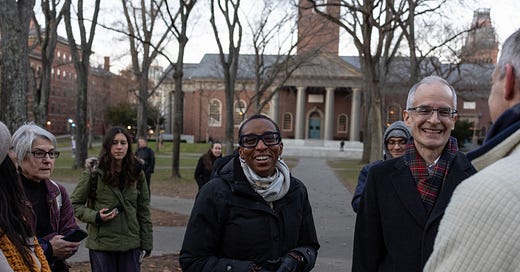







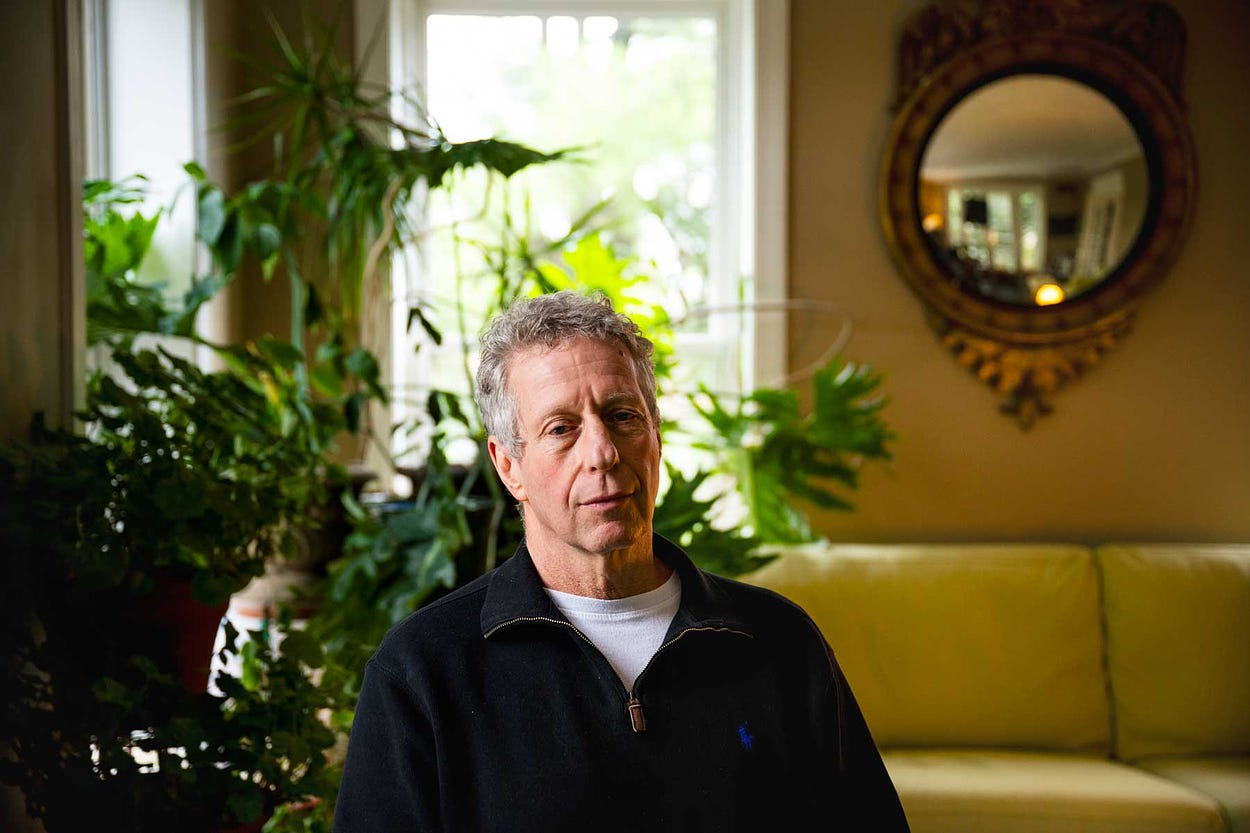

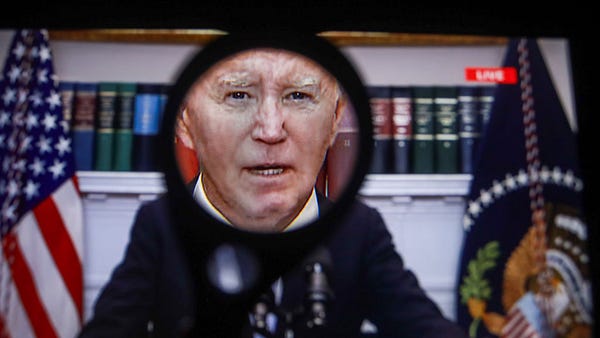



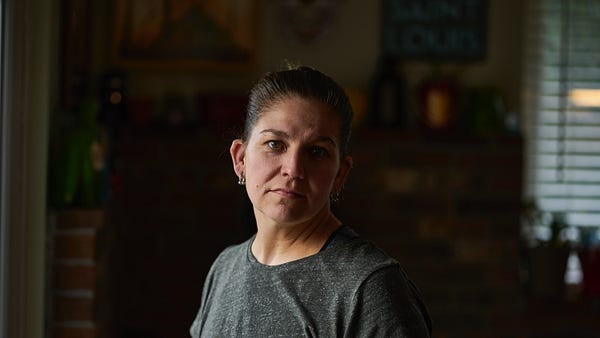

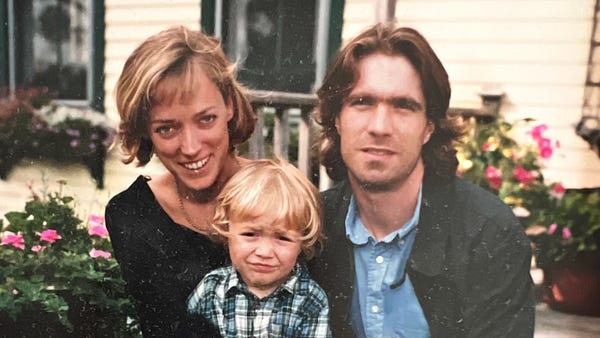


Good Riddance!
Clearly Harvard doesn't believe in equality of outcomes.